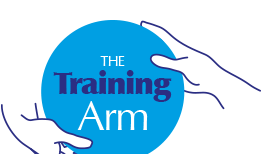
Course: Introduction to 8051 C Programming
Duration: 5 Days
Course Background
The C programming language is over 40 years old. It is a testament to the genius of the gifted researchers at Bell Labs who developed it that it is still very widely used. C programming is a mainstay of embedded systems programming. In an age where traditional analog systems have. laregely, been replaced by digital systems capable of capturing and processing analog inputs digitally and controlling analog outputs digitally knowing how to program in C is an essential skill. The genius of C is that it is both a high level programming language, and yet, one that is very close to assembler.
Course Prerequisites and Target Audience
A basic knowledge of programming and working with PC tools is assumed e.g. simple shell programming, JavaScript programming or web programming with PHP. A knowledge of binary, octal and hexadecimal number systems would be helpful.
Course Overview
The course discusses C programming in the context of implementing C applications for 8 bit 8051 based micro-controller architectures.
A distinction is made between pure ANSI C programming and use of pragmas and extensions as found with various embedded C compilers targeted at specific microcontrollers.
General ANSI C programming is taught using a PC oriented IDE such as Microsoft's Visual Studio or the GCC compiler under Eclipse.
Embedded target specific aspects are illustrated using one or more C compilers for 8051 core based architectures.
You will also learn basic techniques for mixed C and Assembler programming
The hands on exercises also introduce the use of simulation, debugging and In Circuit Debugging techniques, as well as techniques for In System Programming.
Course Benefits
Students successfully completing this course will have a sound understanding of C programming. You will understand the basic C data types, arrays and pointers.
You will have a good appreciation of data structures and their uses, and the use of pointers to data structures and arrays of data structures.
You'll learn how to use arrays to implement circular buffers and how to use them, and how to use arrays to implement stacks, and the uses of software stacks.
You will also be introduced to basic techniques of memory management and programming with dynamic data structures - and to circular buffers and stacks and linked lists.
You'll also learn techniques for implementing interrupt handler code in C, multi-module programming including applications containing a
mixture of C and assembly language modules, and techniques for manipulating hardware registers and special function registers in C.
Course Outline
- C basic data types
- Integer types
- Floating point types
- Pointers (pointer arithmetic, pointer derefencing)
- Arrays
- The relationship between arrays and pointers
- Enums
- Programming constructs
- if - else statements
- switch statements
- while loops and do - while loops
- for loops
- goto statements
- Functions in C
- Function prototypes
- Understanding C's call by value mechanism for passing arguments
- Implementing functions
- Calling functions
- Using pointers to pass values by reference
- Passing arrays to functions
- Understanding C's return value mechanism
- Using pointers to return values by reference
- Data Structures
- Defining data structures
- Accessing and manipulating the elements of a data structure
- Pointers to data structures
- The arrow (->) operator
- Using a pointer to traverse an array of data structures
- Advanced topics
- Pointers to pointers
- Function pointers
- const and static keywords - their meanings and uses
- casts and casting
- Using void * pointers
- Data structures containing pointers to data structures
- Data structures containing function pointers
- Function pointers and table driven programming
- Bit fields in data structures
- Unions
- Using arrays to implement circular buffers and stacks
- Modules as data structures and interfaces
- Dynamic data structures and their uses
- Singly linked lists
- Doubly linked lists
- Overview of the C standard library
- putc, putchar, getc, getchar
- printf, scanf
- String manipulation functions ( strcpy, strcat, ... )
- Embedded System Oriented Topics
- Setting up port addresses
- Defining bit oriented data structures
- Compiler specific features
- #pragmas
- Non ANSI C extensions
- Accessing and manipulating special function registers
- Implementing interrupt handlers
- Calling assembly code from C
- Calling C from assembly code
- Linkers and linker scripts
- Understanding target peripheral device libraries and their uses
- Implementing your own device libraries
- Timers and their uses
- Hardware timers
- Software timers
- Basics of Device Peripheral Programming
- Port I/O - flashing LEDs
- Software delays
- Keypad scanning
- Basic RS232
- Basic data acquisition and sensor interfacing
- Working with EEPROM (on chip and SPI/I2C)
